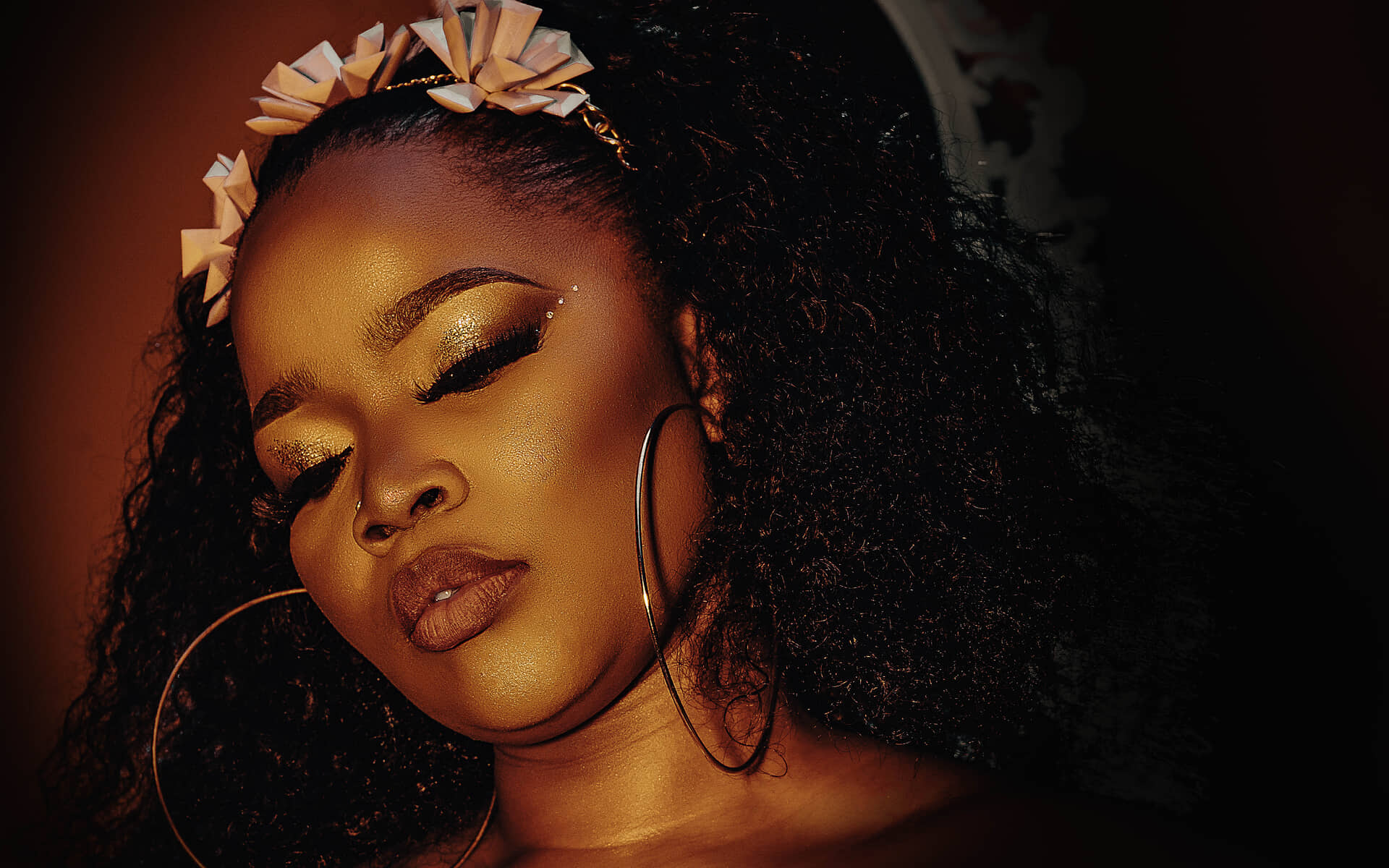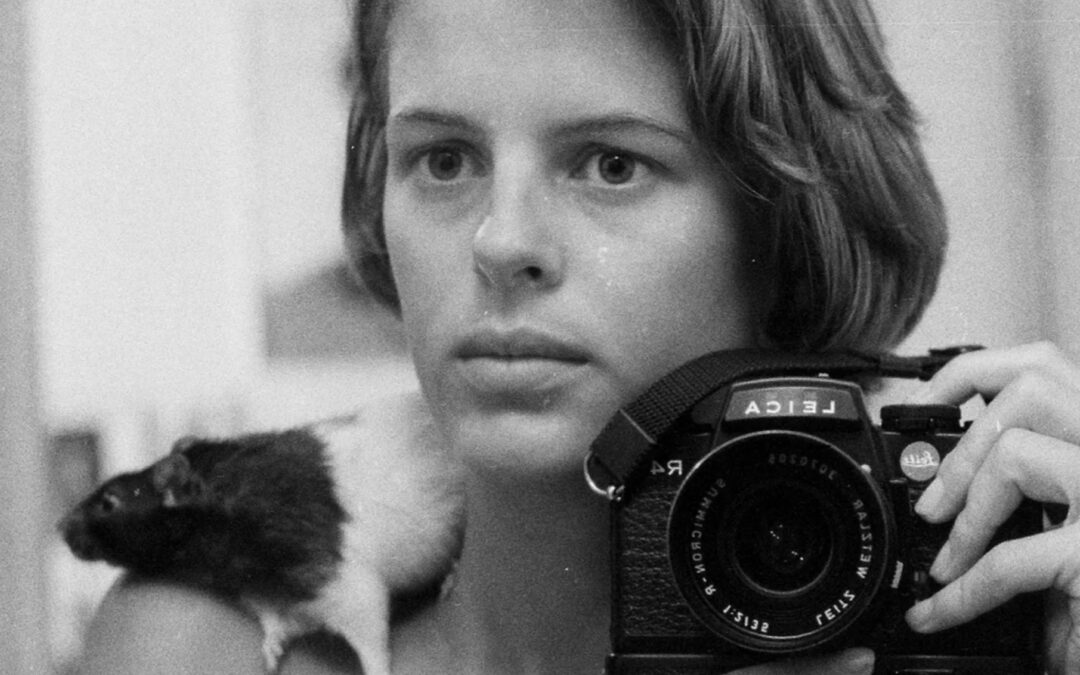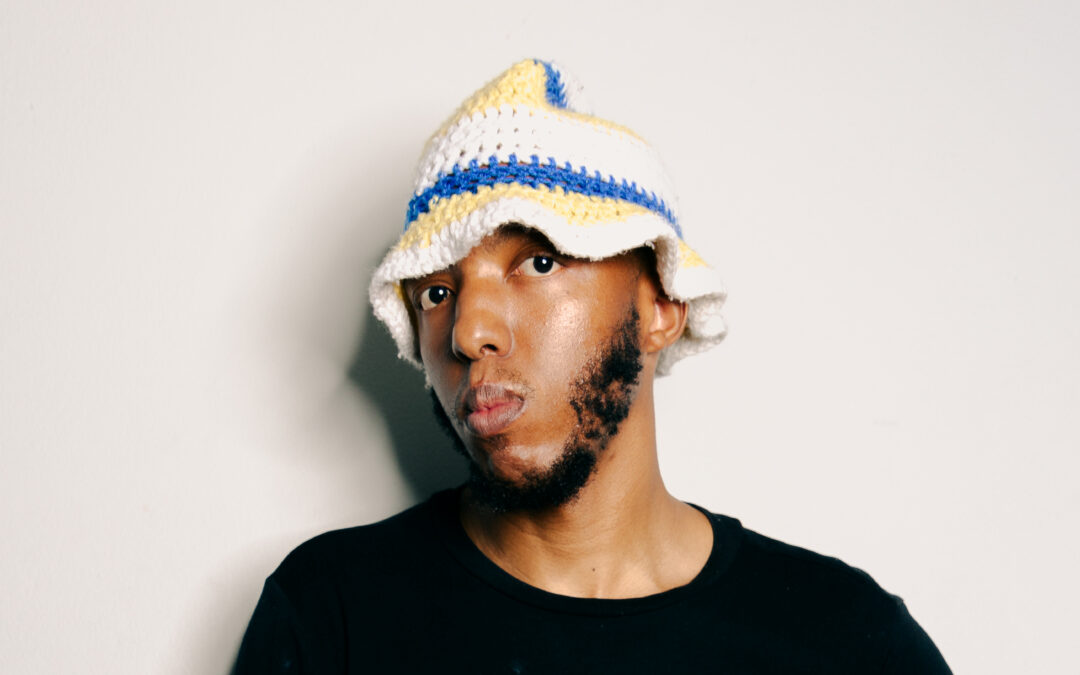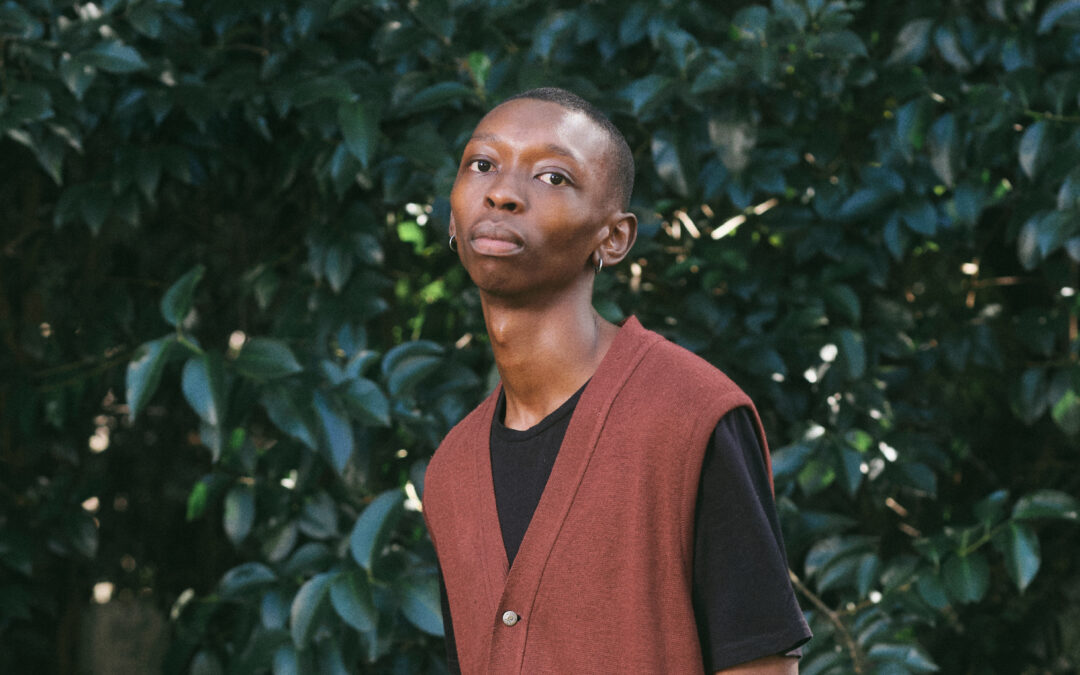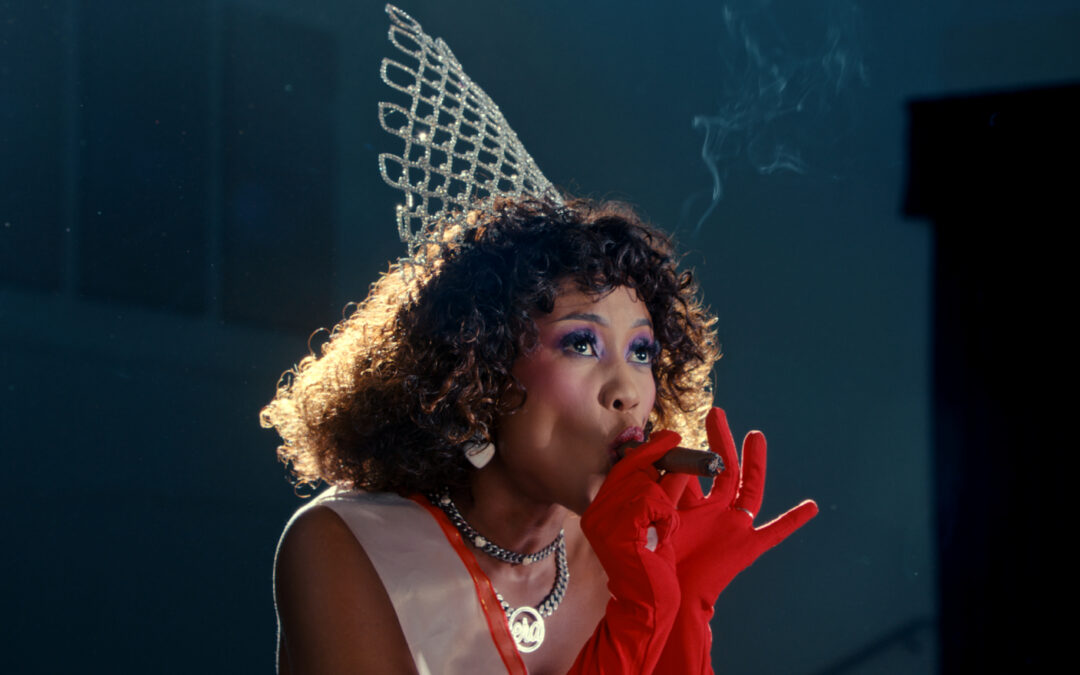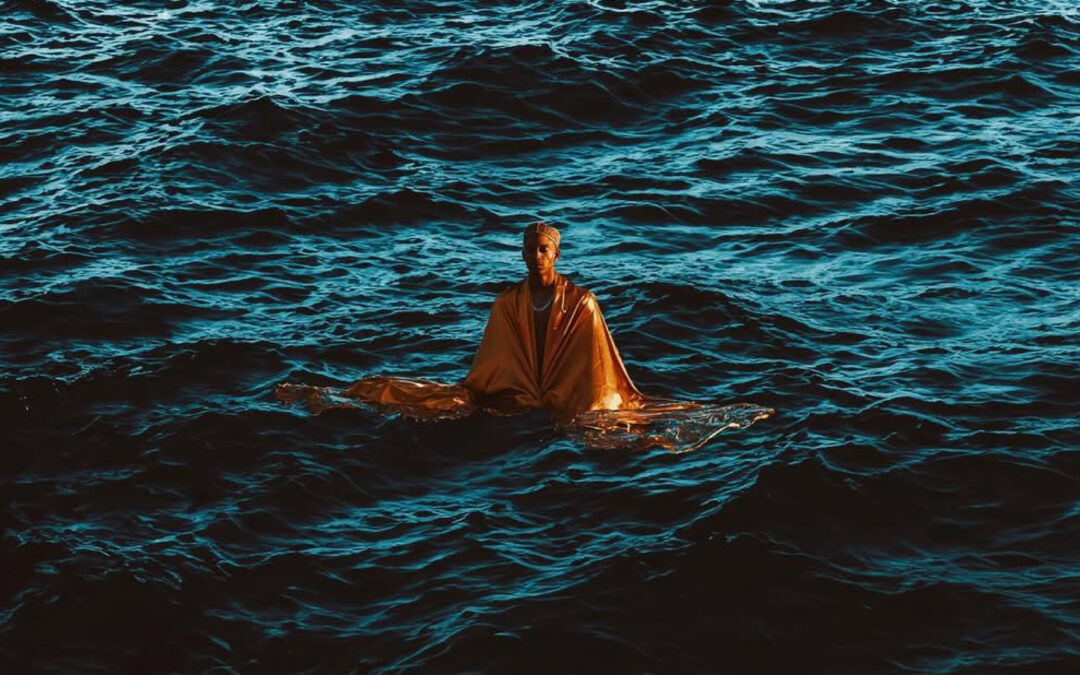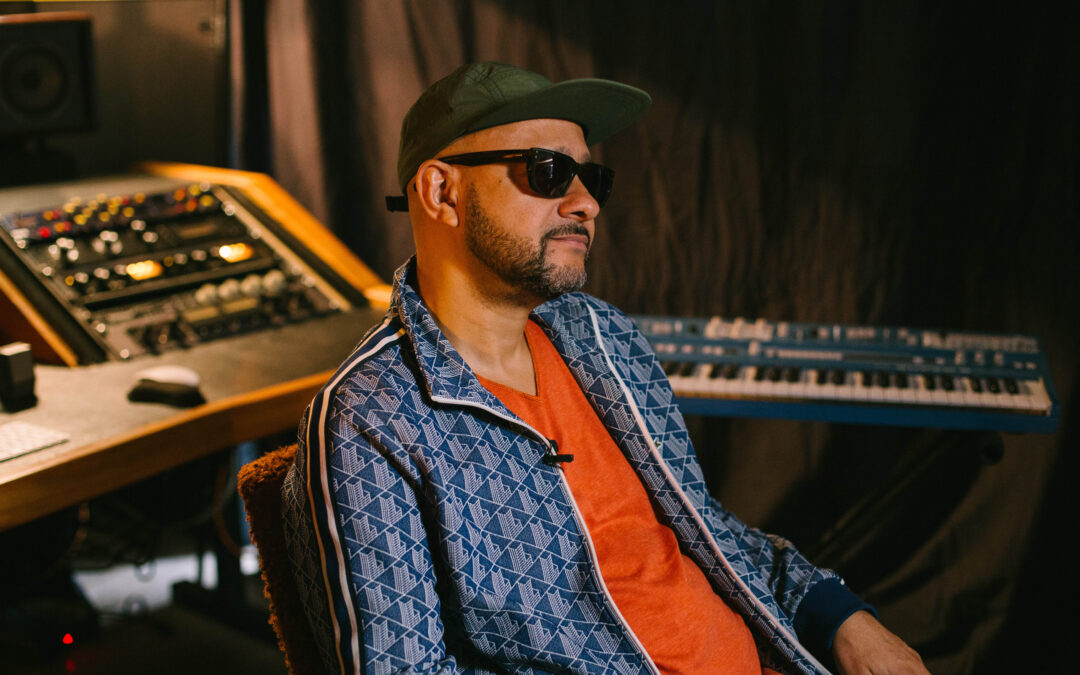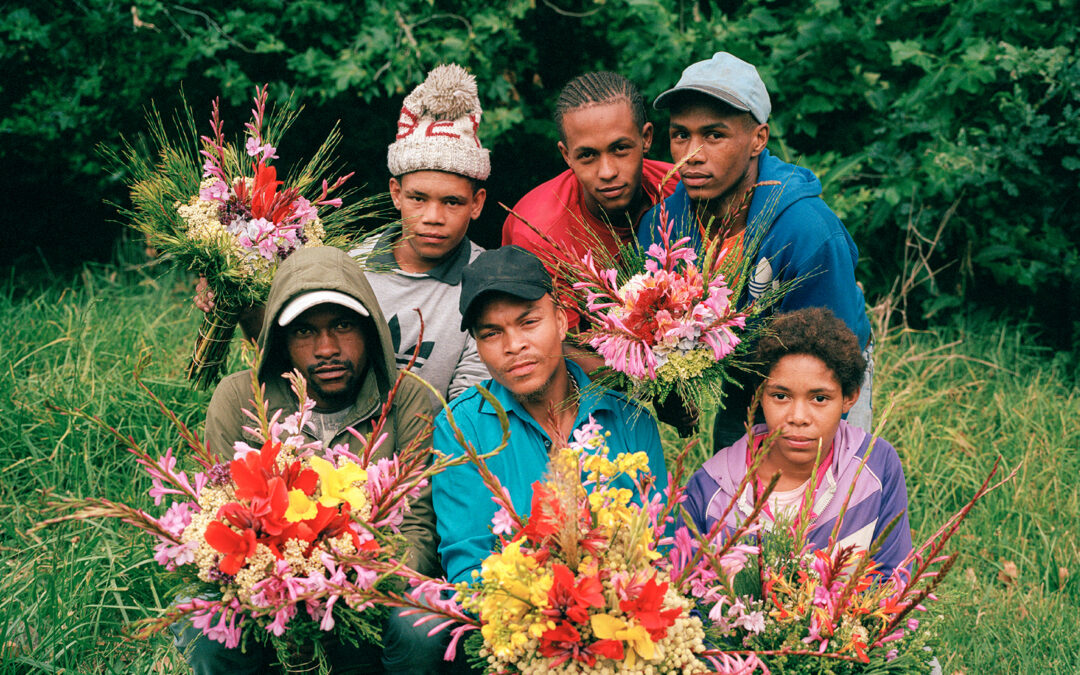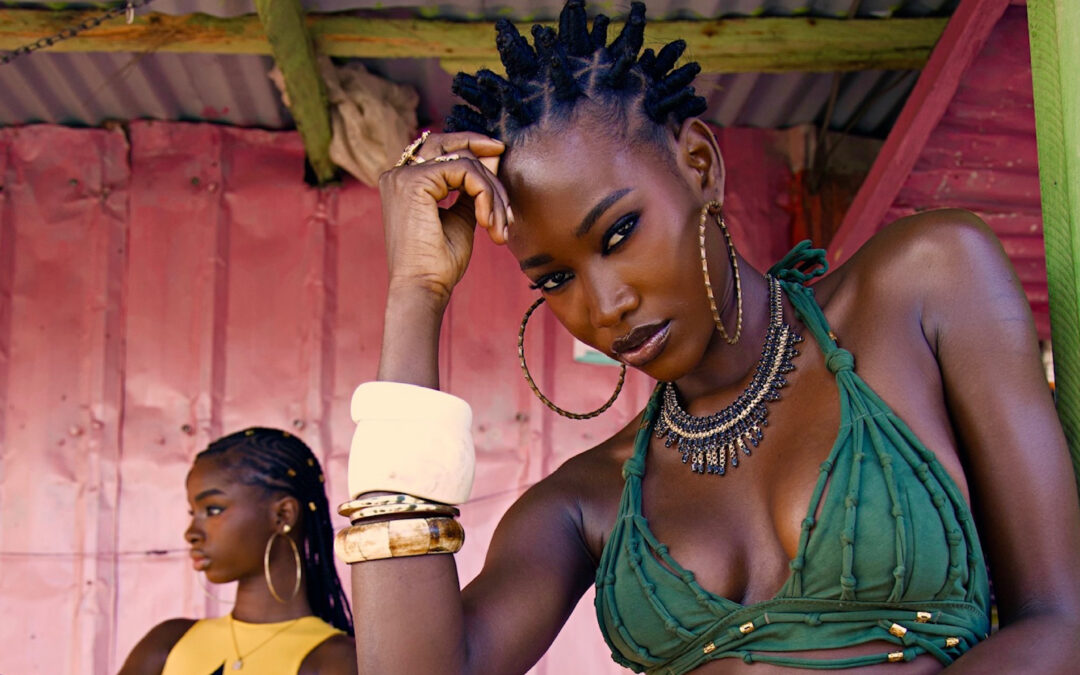I, like a host of my peers crippled by the perils of adulthood, am guilty of believing I knew better in the peak of my youth. As a teen, I would disregard the several occasions where my father said, “When you are older, you will understand.” As my relationship with history and society stretches beyond podcasts, documentaries and books, the thread of introspection moulding my spiritual bandwidth bleeds into an intergenerational exchange with family, where songs like “Don’t Fear,” “Wanna Know,” and “Do You Hear Us?” seethes open the door for unspoken wounds to be treated.
These songs belong to King Williams Town born, Pretoria raised, Singer, Songwriter, Actor, and Naledi Theatre Award-nominated playwright/director Zimkitha Kumbaca, affectionately known as Zimkitha. The Tshwane University of Technology alumni is rooted in the choral traditions laid by her father, a choir conductor and staunch harmonist of Amadodana Ase Gabe, a faction of the Presbyterian Church who extended the transcendent fortitude of Amadodana Ase Wesile, the renowned acapella South African Gospel Group founded by Thomas Mokhathi & Mongezi Nhose for the Methodist Church’s Young Men’s Guild of Gauteng’s Central District in 1985.
Breathing between dense conversations narrating the art, fashion, poetry, Travellin’ Blak band experience and the memories leading to the birth of her sonic alter of overcoming, “The Black Enigma,” wields the broken chains of a generation who wrestle with the reality of freedom, which has materialised as Democracy however, is still tethered in the spellbound of generational mourning. The loss of elders, the friends and family who never returned from Apartheid jail cells, and socioeconomic disparity, we are a people who, in Zimkitha’s words, “Couldn’t take the time to grieve, we couldn’t afford it, grief was expensive.”
The mourning, if left unattended, dictates how we love, how we pursue dreams, and who we select as our inner circle of support. “Baby Vuka” and “Dreams” found me and my muse encouraging each other to walk barefoot in the thorny gravel of entrepreneurship exactly how my late grandmother from the Eastern Cape would have wanted. The endearing voice notes of family and friends who speak life into Zimkitha’s dream are resoundingly one of the defining anchors of this album, for they serve to affirm not only Zimkitha but remind us that this walk to restoration takes a village to endure.
Enamoured by features such as Ayanda Jiya, Wordz, Wakithi, D.O.X.RSA, Thami Lami, Dineo Komane, Mat-The-Myt, Vsinare, Tasha HendrixX and production from the sound architects like K.Fresh, Hāzy, Purple Keyz, Ulumusic, G Sta, Phoenix Flame and F&B Rhythms, “The Black Enigma” is an enclave of R&B, Afro-Soul, and Neo-Soul theatrically curated to have a cup of coffee with your journals, turbulent waters bubbling in your soul. Honoured by her grace and generous intellect, I cherish these moments where we conversed about grief, fear, faith, community, and what is next for her journey.
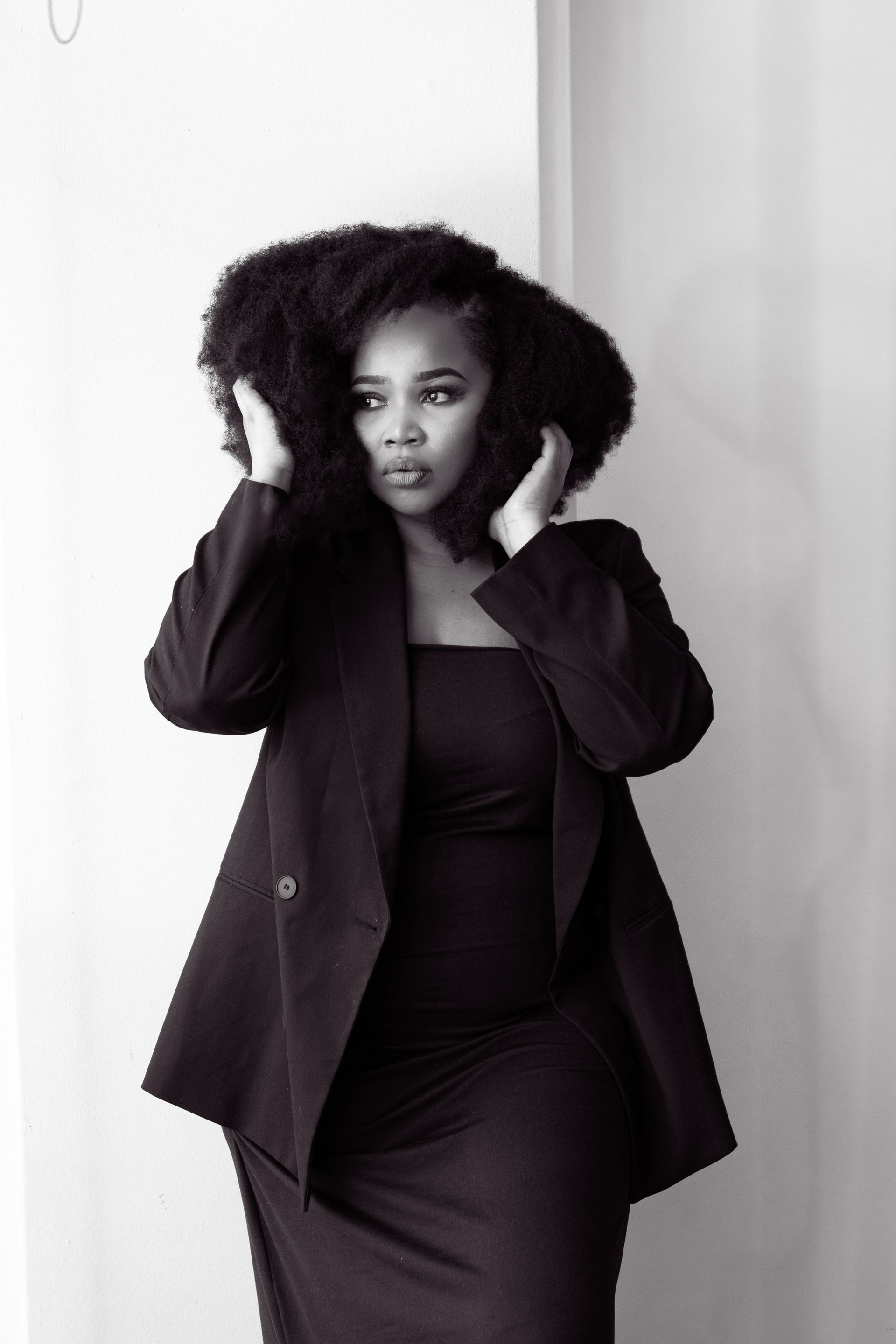
All imagery courtesy of Zimkitha
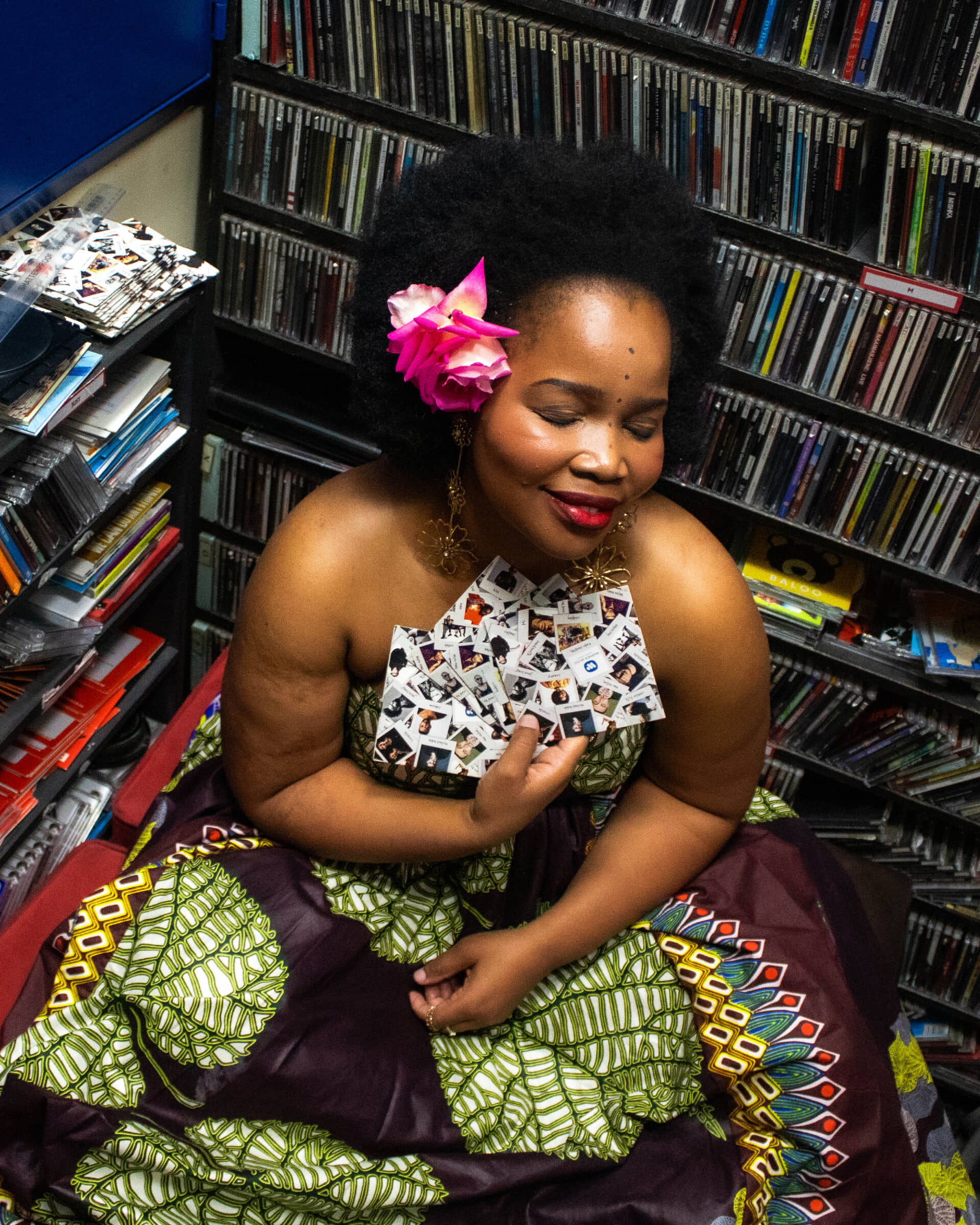
For our readers who may not be familiar with you. Please introduce yourself and share more about your creative path. How was life growing up, leading to your journey with music?
Zimkitha: “I’m Zimkitha Kumbaca, call me Zimkitha. I’m a singer, songwriter, actor, and playwright. I’ve always been connected to music since childhood. My dad was a choir conductor who held rehearsals in our garage. I heard notes and chords constantly. He was also in a gospel choir that recorded albums. Living in the Eastern Cape, music was woven into ceremonies, church, and celebrations. I developed a deep curiosity about songs, asking my dad what lyrics and words meant, trying to understand why certain sounds moved people so profoundly.
At school, I joined choirs and formed groups with friends, thinking we were the next Brandy and Monica. The turning point came at 16 when I met university musicians at a poetry session who invited me to join their band. One bandmate challenged me to write songs on the spot, not just at home. Learning to write spontaneously taught me to play with words and let creativity flow, even through the corny stages that helped develop my craft.
When the band eventually disbanded due to life and lack of resources, I had to find my way. My parents refused to let me study music despite exposing me to it my whole life. I compromised by studying drama, which helped tremendously. I learned performance techniques and stage presence that made me stronger on stage.
But the music industry proved challenging. I grew up loving Neo-Soul and R&B, but genres kept changing. To break through, you had to jump onto whatever was trending: Hip-Hop, House, whatever. Being young and unsure, I got sidetracked by people trying to sway me toward different routes. The most important lesson I learned was to be okay with pouring out what’s really in my heart and accepting my voice as it is. My voice doesn’t sound like everyone else’s, and that’s fine. I had to release the rat race mentality and pressure to “make it now,” affecting my creativity. I realised I need relaxation and calm to create anything authentic.
By 2019-2020, I was ready to quit music entirely. I had reconciled with myself that maybe it wasn’t meant for me. Then lockdown hit, and I was stuck with the studio, the mic, and time. It was like the universe asking, “What do you want to do? Quit? Watch this.” And that’s when everything changed.”
Watch Live Performance Showreel below:
From visual art, fashion design, theatre, music and poetry you have experienced different mediums of expression in your lifetime. What would you say the different languages that shape the culture behind expression have taught you about your divinity?
Zimkitha: “Art started as my way to express what I couldn’t put into words. As a child, I always felt something deep inside but couldn’t articulate it, so I began with painting and drawing. My cousin was a fine artist, and watching him disappear into his canvas showed me how to pour out feelings through colour and form.
I was a child during South Africa’s transition from apartheid to democracy, though I didn’t understand it at the time. There was constant turmoil, gunshots, helicopters, people dying, families separated. We’d watch the Truth and Reconciliation Commission on TV while adults told us everything was fine now. I didn’t understand the politics, but I felt everything intensely. Art became my outlet for processing these overwhelming emotions.
I progressed from painting to music, singing along to songs, then writing and recording my own notes on a little recorder my parents bought me. Different mediums served the same purpose: expressing what I felt inside. The ’90s and 2000s Neo-Soul movement was transformative. Artists like Jill Scott broke every rule about how you’re “supposed” to sing. When Jill Scott sang “You’re here, I’m pleased,” it was conversational, real, not mathematical or structured like traditional R&B. These artists offered freedom in singing with your natural voice, even if others called it flat or weird.
Without their boldness, I wouldn’t have found myself musically. They showed that music doesn’t have to follow formulas: it can be whatever you’re feeling. You just surrender to that feeling. This era birthed everything we have now. The influence extends beyond music to my acting, directing, and playwriting. I’m an acquired taste as an actor, and I’m intentional about that. Groundbreaking artists in theater, especially protest theater, broke rules before I arrived, giving me permission to do the same.
Artists like Billie Holiday singing “Strange Fruit” showed it’s okay to go to difficult places in your art. These unapologetic voices who listened to the frequency of their time created space for voices like mine to exist and be appreciated. What happens outside influences what happens inside, but sometimes what’s inside becomes the beginning of something that influences everyone else. It starts with understanding the emotion you’re experiencing and finding a way to express it. Depending on the season, you go for it.
Every generation of rule-breakers creates space for the next. That’s how art evolves, through artists brave enough to be themselves completely.”
“Baby Vuka” feels like a warm hug from my matriarchal ancestors; it reads as a mantra of overcoming adversity and character shortfalls. In your journey of healing and defining self-worth, how did you first come across the power of affirmation and change in perspective?
Zimkitha: “I’d been working on my album since 2020, trying to be technically perfect and musically correct. But I was stuck in a cycle, dropping singles here and there, juggling multiple projects, staying busy with work because we were broke after lockdown.
My grandmother was very sick with dementia and kidney failure. We all knew the end was near. On the day she passed, I got the call from my mom while I was stressed about writing verses for other artists. Instead of processing the news, I compartmentalised it and threw myself into work, writing songs, recording immediately, not allowing myself to feel anything. The next day, I performed at the Basadi in Music Awards show. I was physically there but emotionally absent. Only when I saw someone and remembered my grandmother did it hit me: “My grandma is gone, and I shouldn’t even be here.” But I still didn’t stop to grieve.
I carried on through the funeral, consoling everyone else but not shedding a tear. I kept recording, working through December while others relaxed. I couldn’t even go home for Christmas, my grandmother wasn’t there anymore. The following year, I cut my hair. Later, I discovered five relatives, including my mother, had done the same thing without discussing it. We needed to release something.
That’s when I finally grieved for the first time in my life. I learned what it meant to feel those emotions instead of pushing them away. I cut ties with musical collaborators because I couldn’t be part of the machine anymore; I needed to experience what I was going through, I needed to head and I decided I didn’t want to lie anymore. I wanted to tell everything, have honest conversations, and connect with people so neither I nor my listeners would feel alone.
After grieving so much, I realised I needed to feel life again. I was tired of saying things were bad; I needed to speak life into my project. Even when my team questioned removing certain songs that could get streams, I knew this was my path
My grandmother’s passing forced me to stop living a surface life. She made me work on releasing everything, all the pain, all the truth. Whether right or wrong, perfect or imperfect, this is where I am now and how I move forward.”
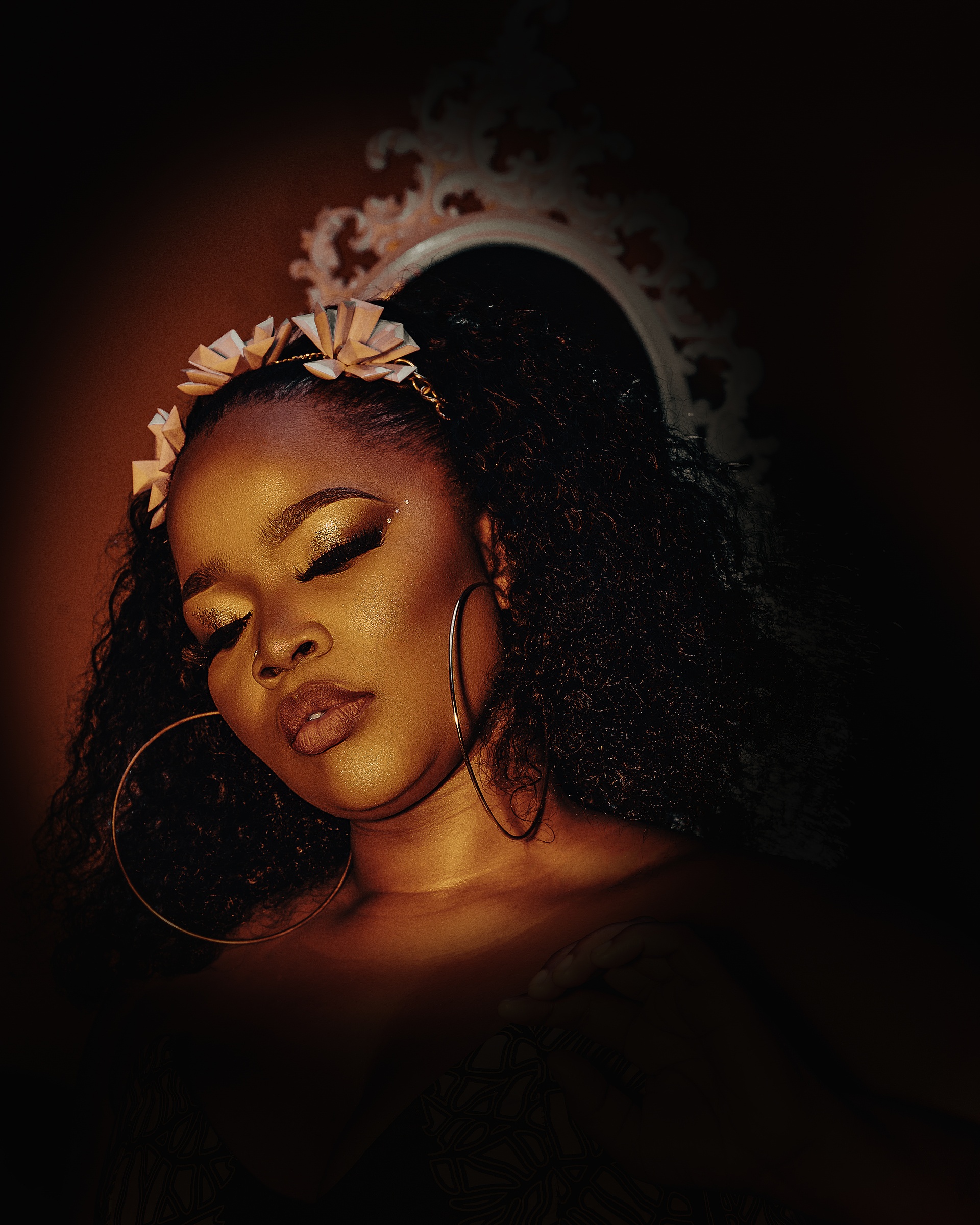
All imagery courtesy of Zimkitha
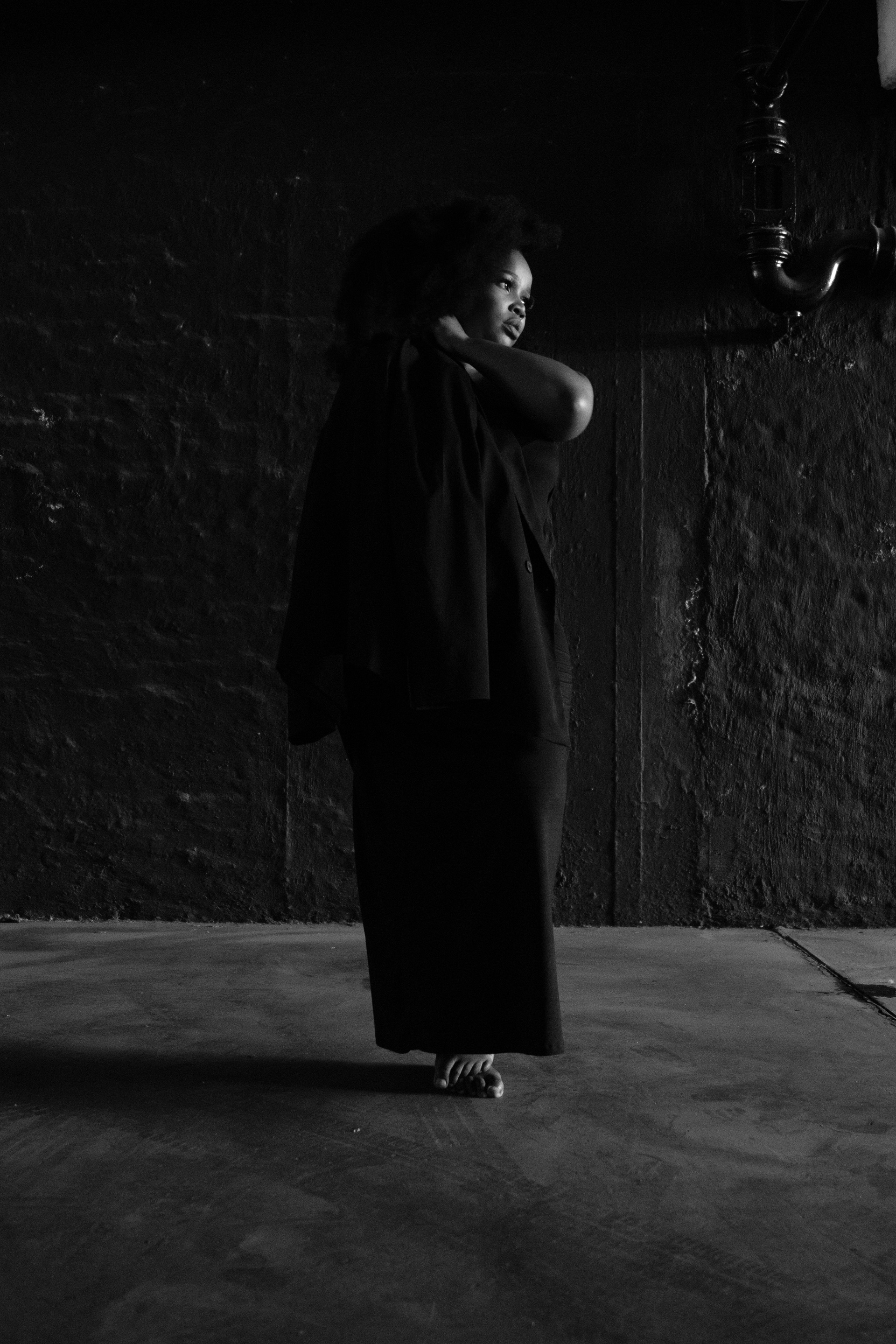
“Who taught us to be scared of our dreams,” and the voice note introducing “Dreams”, compelled me to grapple with visions’ existential and spiritual implications. How do you balance the faith and discipline of materialising a dream and navigate the fear of or the eventuality of failure on your path to success?
Zimkitha: “I’ve learned that your teenage years are when you exist in your most authentic, fearless self. Between 16 and 24, I trusted my intuition completely; you couldn’t tell me anything because I knew it was always in me. But adults constantly warned me: “This is the format, this is how things are done.”
After 24, I experienced a different life where everything I believed was challenged. Success was taking longer, the things I loved weren’t acknowledged by others, and my faith was tested through my late twenties into early thirties. The only thing that kept me grounded was remembering what I wanted to do as a kid, whether praying, being by water, taking afternoon naps, or creating something. That thing that kept me alive when the world felt like my oyster. That’s the source.
This only clicked during lockdown when I was going through a lot. I realised I needed to return to what gave me joy, regardless of whether the world was entertained by it. The point isn’t external validation, it’s doing what I said I would do and accomplishing that, even if it comes with heaviness and rejection. I’ve been repeatedly rejected and told I was wrong, only to be proven right.
My first opponents were my parents, saying “You can’t do that” despite my solid dreams about being where I was supposed to be. Some songs literally came through dreams. One pivotal moment came when a friend called me after having a dream about my success. She left a voice note saying, “Don’t let it go. You are brilliant. It’s going to happen. Don’t give up.” I still have that voice note. She trusted her dream enough to tell me about mine when I denounced my dreams because people told me they weren’t real.
When success finally happens, you realise we need to investigate who taught us not to believe in ourselves. Why do we let external voices conquer more than our dreams? Those dreams are real. Often, people who attack your dreams come from places where their own dreams weren’t validated, so they pass on the belief that “it cannot happen.” This traces back to the legacies of colonialism and the systems that made people feel they were not good enough.
We need to unlearn these patterns. Just because your parents went through something doesn’t mean you will, too. Just because others didn’t win doesn’t mean you won’t. Speak life to your dreams, no matter how small or big. Do your part.”
Thank you for joining us for this interview. Before you leave, please share some of your future plans. What’s next for Zimkitha?
Zimkitha: I’m working on an unplugged version of The Black Enigma project, featuring recordings from all my live shows with different audiences. Thankfully, people believe in this project and are helping me navigate it musically.
I’m performing at the Balcony Sessions because I love the venue and audience. They’ve received me warmly, so I decided to experience this space for the first time. It’s happening on the last Sunday of August. I want people to experience how audiences connect with my work, to see The Black Enigma from the outside looking in and understand how the music creates real connections between people.”
Watch “The Black Enigma” (Trailer) here.
Stream “The Black Enigma” here
Connect With Zimkitha
Instagram: @zimkitha_enigma
X (formerly Twitter): @ZimkithaEnigma
Facebook: @zimkithaenigma
Tik Tok: @zimkitha_enigma
YouTube: @zimkitha
Written by Cedric Dladla
For more news, visit the Connect Everything Collective homepage www.ceconline.co.za

